
Japan has seen an increasing number of foreign tourists in recent years. The number of visitors to Japan is expected to keep increasing, as more take interest in exploring the Asian nation. Taking advantage of the flow of such times, various services for these tourists are being developed.
Japan is well-known around the world for its hospitality. There are many services to assist foreign tourists during their stay. Here are five such services we recommend.
- Table of Contents
-
- 1. Shrines are universally accessible! You can pay via QR for Omikuji
- 2. Airport gachapon machines!
- 3. Tattoo-friendly hot springs map: It’s good to know if you can go before you get there!
- 4. Taste Japan! Get a home cooking experience at a private home
- 5. Food that is safe for Muslims! There is an app that can check ingredients
1. Shrines are universally accessible! You can pay via QR for Omikuji
Visitors to Japan usually visit the shrines and temples, at which they can enjoy Japanese culture and history. There are many services being developed for international tourists at these shrines and temples.
Our first example is "Kifune Shrine" in Kyoto, Kyoto Prefecture.
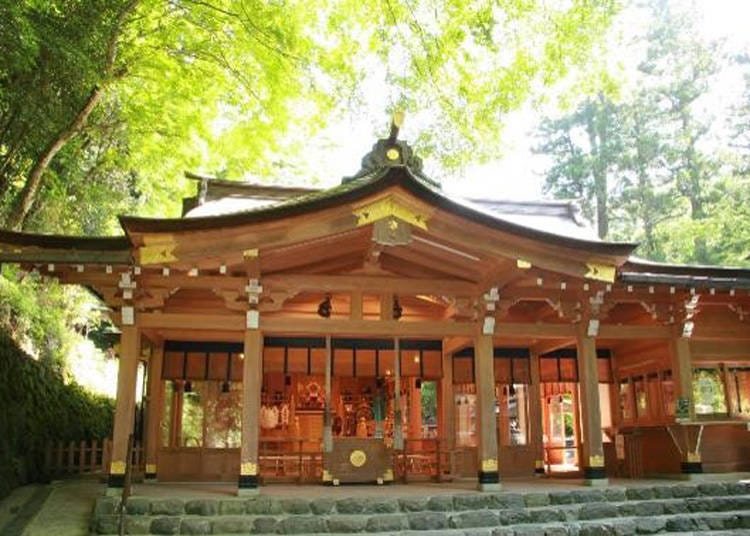
This shrine is known to be a destination to celebrate the god of marriage and is popular with tourists.
This shrine is famous for Mizuura Mikuji, an Omikuji fortune that appears when you float it on water, and the fortune appears.
QR codes have been introduced in this fortune-telling lottery.
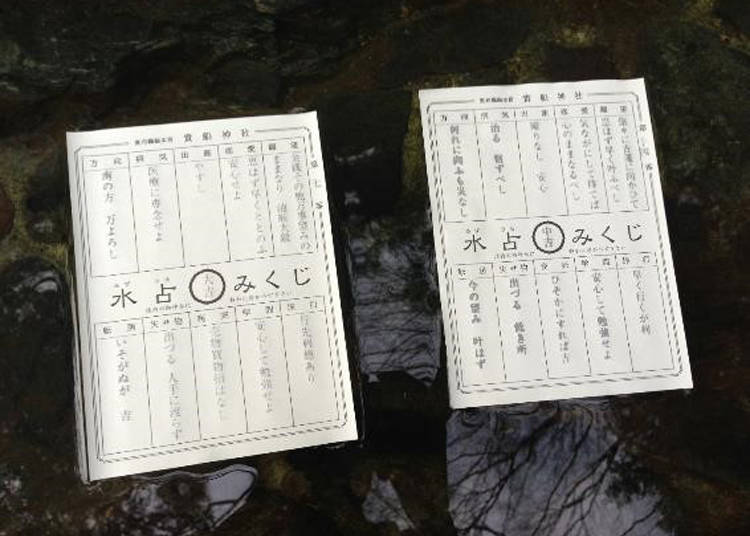
You can access the omikuji results by loading the code on your smartphone. It can translate into English, Simplified Chinese, Traditional Chinese, and Korean.
This is a hospitality service designed to allow international travelers who do not read Japanese to enjoy omikuji. It is also popular with Japanese tourists because they can keep the results and read them later.
-

-
Address
180, Kuramakibunecho, Sakyo-ku, Kyoto-shi, Kyoto, 601-1112
View Map -
Nearest Station
Kibuneguchi Station (Eizan Dentetsu-kurama Line)
30 minutes on foot
- Phone Number 075-741-2016
-
Address
180, Kuramakibunecho, Sakyo-ku, Kyoto-shi, Kyoto, 601-1112
Another shrine in Kyoto is Shimogamo Shrine.
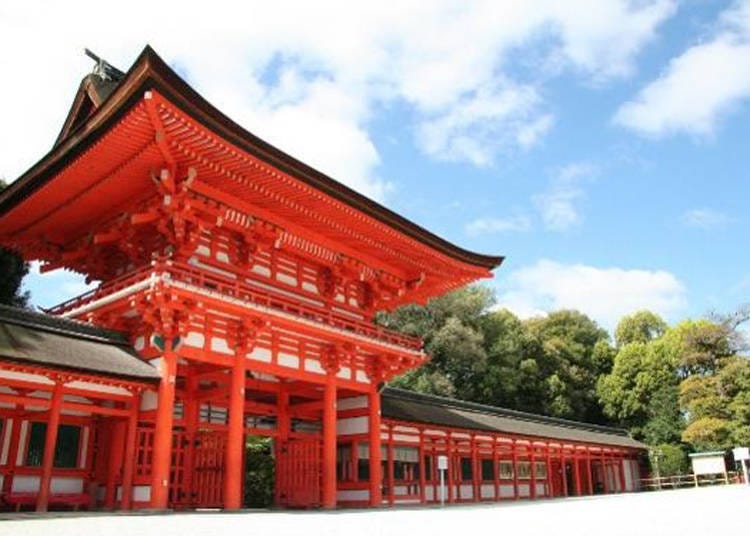
This shrine is a world heritage site and has recently had electronic payment options introduced. You can use electronic money and credit cards in place of cash to get amulets and bills.
This option was introduced because of the number of inquiries from international tourists who could not use their usual payment methods, such as Alipay (the largest electronic payment app in China).
More shrines are starting to offer electronic payment services. The digitization of temples and shrines will most likely continue to progress.
-

-
Address
59, Shimogamoizumigawacho, Sakyo-ku, Kyoto-shi, Kyoto, 606-0807
View Map -
Nearest Station
Demachiyanagi Station (Eizan Dentetsu Eizan Line)
10 minutes on foot
- Phone Number 075-781-0010
-
Address
59, Shimogamoizumigawacho, Sakyo-ku, Kyoto-shi, Kyoto, 606-0807
2. Airport gachapon machines!
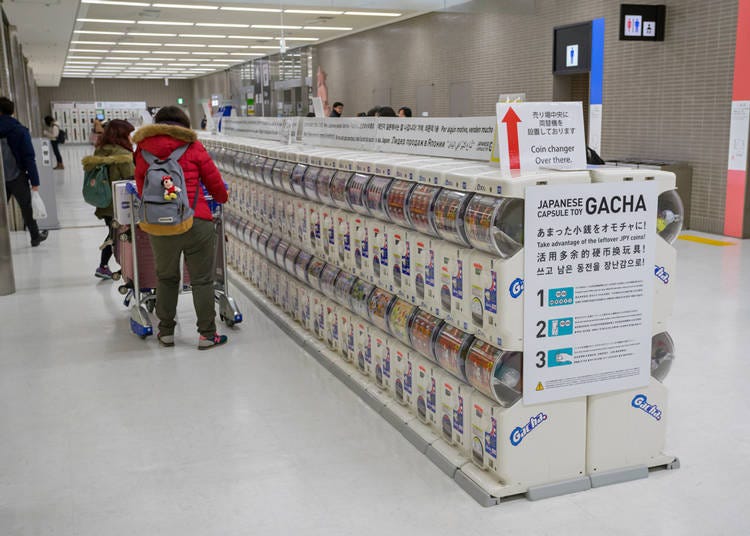
Japanese airports are quite popular, especially with their gachapon capsule toy machines. There are almost 200 installations at Narita International Airport and more than 100 at Kansai International Airport.
Gachapon is a little toy capsule machine, where you put in coins, twist a dial, and receive a surprise gift! Most gachapon will have images of their selection on the machine itself, random from cute fake food to weird animals with giant chins!
This project, named JAPANESE CAPSULE TOY GACHA (Takara Tomy Arts), started when they heard that a lot of tourists were getting to the airport with nothing to do with all those coins! You can't exchange small change when you're back home, so it makes sense to grab one last fun souvenir!
3. Tattoo-friendly hot springs map: It’s good to know if you can go before you get there!

One of the most popular travel destinations for international tourists is Japanese hot springs. In the "Consumption Trend Survey for Foreigners Visiting Japan" (Ministry of Land, Infrastructure, Transport and Tourism) published in 2017, eating Japanese food, shopping, what to expect before visiting Japan, and what to do next were investigated. The results said that hot spring bathing was ranked next to regular activities such as nature sightseeing.
It is difficult to simply explain the wide variety of qualities of hot springs and the atmosphere of the towns that contain them.
However, when talking about hot springs with international tourists, the "tattoo problem" is unavoidable. In other countries, tattoos are fashionable and acceptable, but in Japan, the image of tattoos is antisocial. The majority of hotels and ryokan in Japan still refuse service to tattooed people.
So, Japan's famous hot spring resort "Oita Prefecture" has opened a website "Explore the ONSEN Country" where you can search for hot springs that allow tattoos - neat!
The website is in English. Among the 164 facilities in the prefecture, such as Beppu Onsen, 95 are accepting of bathers with tattoos. Also, you can check whether you can make a private reservation, whether there is an outdoor bath or the quality of the spring.
It is a service created to ease the worries of travelers so they can be fully immersed in the charm of the Onsen Prefecture without any hesitation.
With the establishment of such services, the number of hot springs with accepting tattoos may gradually increase over time.
4. Taste Japan! Get a home cooking experience at a private home
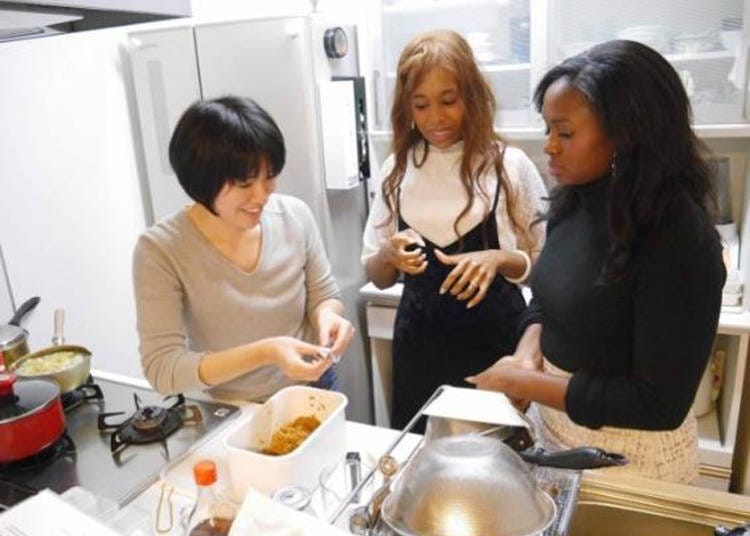
Travelers to Japan want to eat Japanese food (shocking!). One experience for doing so, that is gaining popularity is the airKitchen service. Tourists can learn about Japanese culture while eating home-cooked Japanese dishes.
airKitchen is a matching platform that connects travelers who want to eat home-cooked food in Japan with Japanese families who provide it. Since you can actually visit Japanese families and cook Japanese food together, it is a service that allows you to experience deeper, local Japanese culture, unlike a regular trip that only goes around sightseeing spots.
The popular ones are a Gyoza making experience, a Bento making experience, and the Sushi making experience. These events last about three hours. The host will set the participation fee, and it is about 5000 yen per person on average.
Also, this service seems to be attracting attention as a new way of working among Japanese homemakers. It can be performed as a side job to earn income by teaching cooking in your own kitchen while making good use of your cooking and language skills.
It really is a novel service that is genuinely Win-Win through inviting travelers to a home and serving food as a business.
5. Food that is safe for Muslims! There is an app that can check ingredients
An increasing number of Muslim travelers are coming from places such as Indonesia and Malaysia.
Muslims only eat foods that are "halal," according to Islamic law. They are not allowed to eat pork or consume alcohol. The biggest problem for Muslims in Japan is food. As well as choosing a restaurant, the ingredients are written in Japanese even at supermarkets and convenience stores, so it is not possible to determine if they are ok to eat.
"Halal Gourmet Japan" was created just for this! This app has restaurant information for Muslims, and you can search for the store from more than 900 Halal restaurant information. It is one of the largest in Japan.
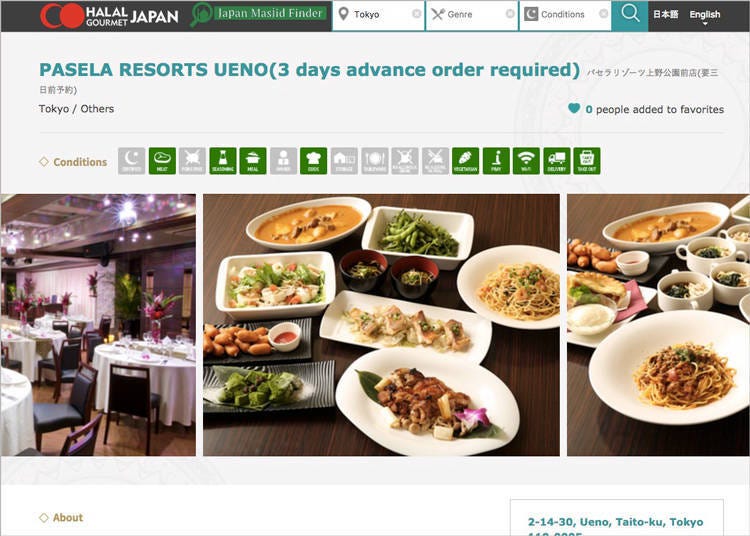
Furthermore, even if you enter food sold at convenience stores or supermarkets from the app, it has a function to judge whether it is halal food. When you take a picture, you can check the ingredients from the food package, and the halal food will have a pink frame so you can check the product information.
Confectioneries such as convenience stores and supermarkets, sweets, and rice balls are targeted. In the future, the number of food types should increase according to the needs of users. In this case, you can know the ingredients even if you can't read Japanese.
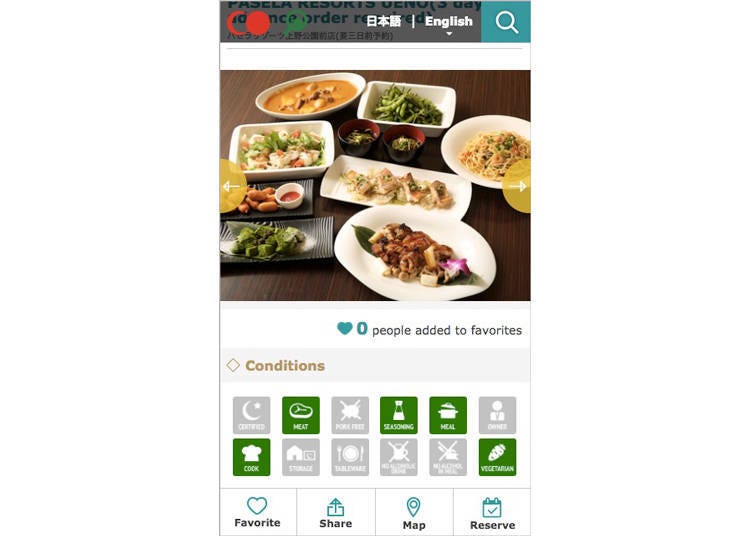
With the increase in the number of international tourists, people with diverse cultures from various countries have come to Japan. In 2020, when the Tokyo Olympics and Paralympics will be held, a new form of hospitality service may be born again.
Written by SUKEMARU
*Prices and options mentioned are subject to change.
*Unless stated otherwise, all prices include tax.
Popular Tours & Activitiess
Recommended places for you
-

Kanzenkoshitsuyakinikutabehodai Gyugyu Paradise Sannomiya
Yakiniku
Kobe, Sannomiya, Kitano
-

Kambei Sannomiyahonten
Yakiniku
Kobe, Sannomiya, Kitano
-

ISHIDAYA Hanare
Yakiniku
Kobe, Sannomiya, Kitano
-
Goods

Yoshida Gennojo-Roho Kyoto Buddhist Altars
Gift Shops
Nijo Castle, Kyoto Imperial Palace
-
Appealing

Rukku and Uohei
Izakaya
Sapporo / Chitose
-

Jukuseiniku-to Namamottsuarera Nikubaru Italian Nikutaria Sannomiya
Izakaya
Kobe, Sannomiya, Kitano
-

PokéPark KANTO Is Finally Open! Tokyo's New Pokémon World Starts Before You Even Arrive (2026)
by: Guest Contributor
-
Ad

The Whisper of a 1,300-Year-Old History: Meet the Other Face of Nara at Night
by: Shingo Teraoka
-
Ad

Japan’s Land of Yokai Monsters and Spooky Stories! A Deep Journey to Mysterious San’in (Tottori & Shimane) for Seasoned Travelers
-

Top 3 OSHI MAPs for the Best Matcha and Sweets in Tokyo
by: Guest Contributor
-
Ad

What Makes Japanese Yakiniku So Darn Good? Guide to Cuts, Heat, and Wagyu Know-How
-
Ad

5 Recommended Wagyu Yakiniku Restaurants in Tokyo: Signature Dishes, Premium Beef, and Secret Sauces
-

38 Best Things to Do in Sendai & Miyagi: Sightseeing, Food, Shopping & Souvenirs
by: Guest Contributor
-

Iwate Bucket List: 20 Best Things to Do in Iwate Prefecture For Tourists (Attractions, Food, Activities)
-

Yamagata Prefecture Guide: Destinations, Activities, Travel Advice, Shopping & More
by: Steve Csorgo
-

‘What’s Kita and Minami?!’ 5 Weirdly Obvious Osaka Sightseeing Tips Tourists Miss
-

Where You Should Stay in Sendai: Best Areas & Hotels For Visitors
by: Lucio Maurizi
-

Sagano Romantic Train: Breathtaking Kyoto Views Through a Natural Paradise!
- #best sushi japan
- #what to do in odaiba
- #what to bring to japan
- #new years in tokyo
- #best ramen japan
- #what to buy in ameyoko
- #japanese nail trends
- #things to do japan
- #onsen tattoo friendly tokyo
- #daiso
- #best coffee japan
- #best japanese soft drinks
- #best yakiniku japan
- #japanese fashion culture
- #japanese convenience store snacks













